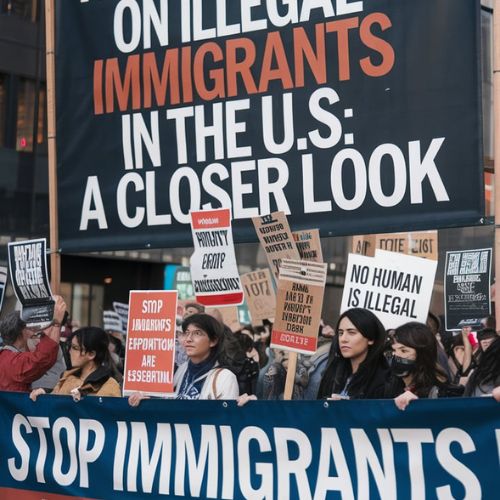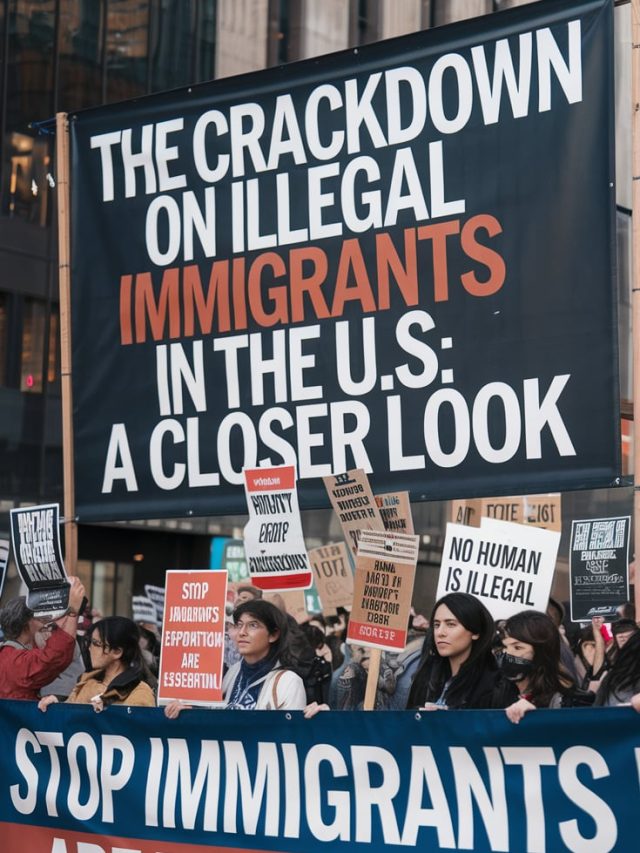The United States has long been a land of opportunity, attracting people from all over the world seeking better lives. However, immigration, particularly illegal immigration, has been a controversial topic for decades. In recent years, the U.S. government has taken a stricter approach to illegal immigration, leading to large-scale crackdowns, deportations, and heated debates across the country.
The Scale of the Current Crackdown
In one of the largest operations to date, U.S. authorities have arrested 538 individuals suspected of being in the country illegally. These arrests are part of a broader effort to strengthen border security and enforce immigration laws. Many of these individuals face deportation, with some already being sent back to their countries of origin via military planes.
This operation highlights the government’s determination to address illegal immigration comprehensively. Supporters argue that such actions are necessary to maintain the rule of law and protect national security. On the other hand, critics point out the human cost of these crackdowns, emphasizing the disruption to families and the harsh conditions many immigrants face during detention and deportation.
Why is the Crackdown Happening Now?
The U.S. administration has cited several reasons for these intensified efforts:
- Border Security: Officials believe that reducing illegal crossings will improve national security and prevent criminal activities such as drug trafficking and human smuggling.
- Economic Concerns: Advocates for stricter immigration controls argue that undocumented immigrants strain public resources, including healthcare, education, and social services.
- Political Commitments: Immigration reform has been a central promise in political campaigns, with elected leaders seeking to fulfill their pledges to voters.
The Human Side of the Issue
While government officials justify these measures, the impact on individuals and families cannot be ignored. Many detained immigrants have lived in the U.S. for years, contributing to their communities and building lives. For these people, deportation often means being separated from loved ones and returning to countries they may barely remember.
Nonprofit organizations and immigrant advocacy groups have stepped in to provide legal assistance and support. They argue that mass deportations often violate human rights and fail to address the root causes of illegal immigration, such as poverty, violence, and lack of opportunity in home countries.
The Broader Implications
The crackdown has also sparked intense political debates in the U.S. Congress and among the public. While some call for stricter laws and increased funding for border security, others advocate for comprehensive immigration reform that includes pathways to citizenship for undocumented individuals who meet certain criteria.
The issue has also strained international relations, particularly with neighboring countries that have seen a surge in deported citizens. These nations must now address the reintegration of thousands of returnees, often with limited resources and infrastructure.
Finding a Balanced Approach
Illegal immigration is a complex issue that requires thoughtful solutions. While enforcing existing laws is essential, policymakers must also address the underlying causes that drive people to leave their countries in the first place. Comprehensive reform could include:
- Expanding legal immigration channels.
- Providing temporary work visas.
- Strengthening foreign aid to improve conditions in countries of origin.
Conclusion
The U.S. government’s crackdown on illegal immigration reflects a commitment to upholding the law but also raises important questions about human rights, economic impacts, and national values. As the debate continues, finding a balance between enforcement and compassion will be crucial to shaping the nation’s immigration policy for the future.






